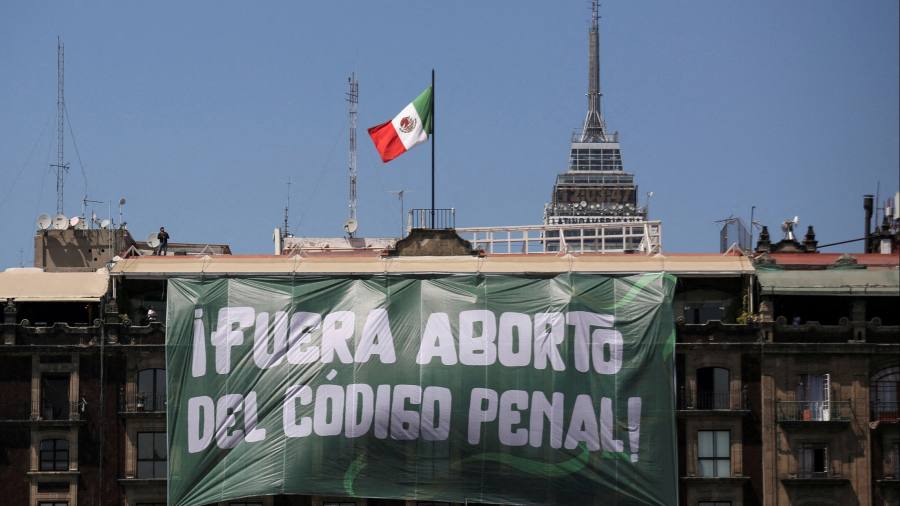
Receive free Reproductive rights updates
We’ll send you a myFT Daily Digest email rounding up the latest Reproductive rights news every morning.
Mexico’s Supreme Court has voted unanimously to decriminalise abortion, the latest victory for reproductive rights activists in Latin America.
The decision from the justices on Wednesday will force congress to eliminate abortion from the federal criminal code, and obliges public health institutions to offer the procedure. It could also result in the exoneration of people who have been convicted of abortion-related crimes in the past.
It is the latest ruling over the past few years by Mexico’s Supreme Court advancing the rights of women and LGBT+ people, and comes ahead of a presidential election next year.
It also comes amid a wave of restrictions on abortion in the US, particularly in Texas, which shares a 1,200-mile border with Mexico, where lawmakers in the state have enacted some of the toughest rules on the procedure. As restrictions in US border states have tightened, while those in Mexico have eased, media reports indicate that some women have travelled to Mexico in search of abortion services.
A landmark 2021 ruling by Mexico’s top court in effect decriminalised abortion by setting a precedent that protected people from conviction for abortions after up to 12 weeks of pregnancy.
Wednesday’s ruling goes a step further by removing it from the federal criminal code and guaranteeing access by ensuring health professionals cannot be prosecuted for performing them.
“Great news in favour of the right to decide,” Patricia Mercado, a Mexican senator who has advocated for women’s rights, wrote on X, formerly Twitter, adding that the Senate would act as soon as possible to comply with the ruling.
Across Latin America, women’s rights activists have pushed a “green wave” in favour of abortion rights, and Argentina and Colombia have legalised the procedure. Even highly conservative Honduras ended a ban on emergency contraception earlier this year.
Across the border in the US, abortion is becoming a significant part of the 2024 presidential campaign after the Supreme Court overturned federal constitutional protections for the procedure last year. Fifteen states now have full bans, according to the Kaiser Family Foundation.
Legal rulings on abortion are just a first step, activists in Mexico say, and ensuring access in practice can be difficult in the majority-Catholic country. The non-profit organisation Gire, which took the case to the Supreme Court, said it had been working to get abortion removed from all the state-level penal codes.
“It’s a big step of course, but we’re only halfway there, we still need to generate the process to fight for implementation, which is the problem there’s been in the states,” said Halessa Rey, a member of the Assembly of Marea Verde, a non-profit group in Chihuahua state that supports women seeking abortions. “Women are still vulnerable and stigmatised”.